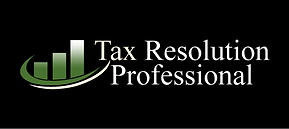Taxation, while a civic duty that keeps our country running, can sometimes become a hefty burden for individuals and businesses, especially during challenging economic times.
Fortunately, the tax code provides several forms of tax relief to help people who might find themselves unable to pay the IRS. Understanding the different forms of tax relief and the qualification criteria can empower taxpayers to take control of their financial obligations to the IRS and seek the necessary assistance.
This article explores the tax relief options available and who can qualify. If the IRS is claiming you owe $10,000 or more, contact our firm immediately for a consultation and learn about your tax debt relief options [insert your contact page link].
Installment Agreements:
An installment agreement allows taxpayers to pay their tax debts in manageable monthly installments. This is particularly beneficial for those who can’t pay their taxes in a lump sum.
Offer in Compromise (OIC):
An OIC is a provision that enables taxpayers to settle their tax debt for less than the full amount owed, provided they meet certain eligibility criteria. This form of relief is ideal for individuals facing financial hardship. Not everyone qualifies, but if you do, this can help you settle with the IRS for a fraction of what you originally owed. Reach out to our firm to see if you qualify.
Penalty Abatement:
Penalties for unpaid taxes are hefty and often sink the taxpayer in deeper debt. That’s why a penalty abatement can provide substantial relief by waiving certain penalties accrued on a tax debt. Individuals may qualify for penalty abatement if they have a reasonable cause for not complying with tax obligations, such as facing a serious illness or a natural disaster.
Innocent Spouse Relief:
Taxpayers who filed joint returns and were unaware of their spouse’s erroneous or fraudulent tax reporting may qualify for innocent spouse relief. This provision can shield individuals from being held responsible for the tax liabilities arising from their spouse’s actions.
Currently Not Collectible (CNC) Status:
The CNC status temporarily halts IRS collection activities for individuals facing financial hardship. To qualify, taxpayers must prove that paying the tax debt would result in severe financial hardship.
Understanding your eligibility for these tax relief options can be the first step towards alleviating your tax burden.
It’s advisable to consult with tax relief professionals who can provide personalized advice based on your unique financial situation. If you’re facing a daunting tax bill or dealing with IRS issues, reaching out to a tax relief professional like us can provide clarity and help you navigate the complex tax landscape towards a resolution. If you owe over $10,000 to the IRS, or have unfiled tax returns give us a call (phone number) for a free, no-obligation consultation to see which of the above programs you qualify for.

